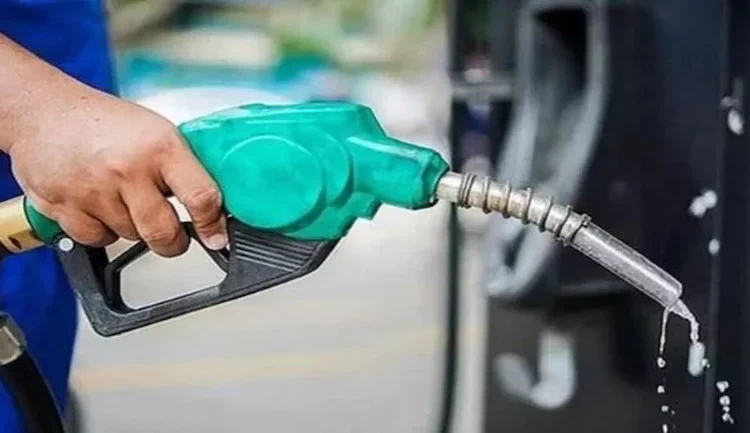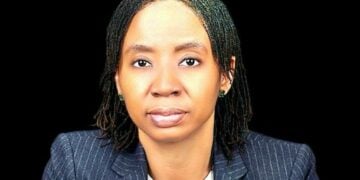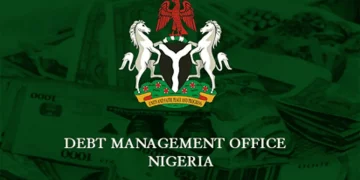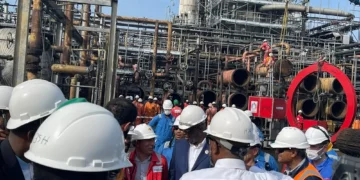The International Monetary Fund (IMF) has said it did not advise the Nigerian government to remove fuel subsidy, as that was a decision taken by President Bola Tinubu.
The Fund also said that Nigeria’s external debt will reach 25 per cent of the Gross Domestic Product (GDP) in 2025.
Recall that President Tinubu in his inaugural speech in May last year had declared “subsidy is gone”, sparking a wave of actions and reactions that has seen the price of petrol rise from N185 per litre to N1,200 presently and contributing significantly to inflation which has spiralled to 32.7 per cent.
The Tinubu-led government also moved to float the currency and is removing subsidy on electricity.
IMF’s African Region Director, Abebe Selassie speaking with Journalists on the sidelines of the 2024 IMF and World Bank Annual Meetings in Washington DC, stated that the decision to remove subsidy in Nigeria was solely a domestic decision.
“The decision was a domestic one. It was President Tinubu’s decision. We don’t have programmes in Nigeria. Our role is limited to regular dialogue, as we have with other nations like Japan or the UK,” he said.
The IMF African region director lauded these policies and wants the federal government to roll out more programmes to protect vulnerable groups against the effects of the reforms.
“We recognise the significant social costs involved,” Abebe said. “The government can mitigate these by expanding social protection for the most vulnerable.”
Meanwhile, data from the IMF’s regional outlook for Sub-Saharan Africa showed that the percentage of Nigeria’s external debt to GDP increased to 22.7 per cent in October 2024 from 11.9 per cent in the corresponding period of 2023 and is projected to reach 25 percent next year.
According to the IMF’s latest regional outlook, released on Friday in Washington, high inflation rates, fiscal deficits, and rising debt obligations continue to undermine the economic stability of many countries, including Angola, Ethiopia, Ghana, and Nigeria.
It also expressed concern over Nigeria’s implementation of social measures intended to cushion the adverse effects of recent economic reforms, specifically the removal of fuel subsidies and unification of the foreign exchange rate.
According to the IMF, these efforts are unfolding too slowly, leaving Nigerian citizens struggling with high living costs as the economy grapples with inflation and other fallout from the reforms.
While the IMF has long advised Nigeria to eliminate what it terms ‘costly fuel subsidies’ and unify the naira’s exchange rate, it also acknowledges the toll these changes are taking on the nation’s poorest. “We welcome those reforms, while also recognising that they have entailed quite a lot of internal adjustment costs,” said Selassie, during a press conference on the IMF Sub-Saharan Africa Regional Economic Outlook held at the IMF/World Bank annual meetings in Washington, D.C. on Friday
IMF urges structural reforms to improve Nigeria’s growth outlook
Selassie emphasised that a more robust approach could have been adopted to shield the most vulnerable. “A better job can be done by rolling out social protection, particularly for the most vulnerable,” he stated.
Acknowledging the impact of the reforms on everyday Nigerians, he added, “The immediate effect of reforms always causes dislocation. We have absolutely, absolutely no doubt that conditions at the moment are extremely difficult. Food price shocks in recent years have been quite acute, and now rising fuel prices are adding pressure on other essential goods.”
The IMF director emphasised the importance of channelling savings from subsidy removals and exchange rate reforms to aid lower-income households. “Some of the savings from the fuel subsidy reforms, the exchange rate subsidy being removed, should in our view, be directed to helping cushion the effect on the most low-level households,” he urged, pointing to the need for targeted social assistance as Nigerians adjust to the economic shifts.
Responding to the perception that current hardships stem from IMF-recommended reforms, Selassie explained that Nigeria’s economic challenges are deep-rooted and not solely attributable to recent changes. “When subsidies were significant and the exchange rate was being kept artificially low, other imbalances were present in the economy, including high inflation and dwindling reserves,” he said. According to Selassie, these factors had eroded the government’s ability to invest in critical sectors like health and education, which were deprived of funds while subsidies continued to drain public resources. “It wasn’t sustainable, and the pressures being felt were affecting health and education, resulting in pain elsewhere,” he added.





